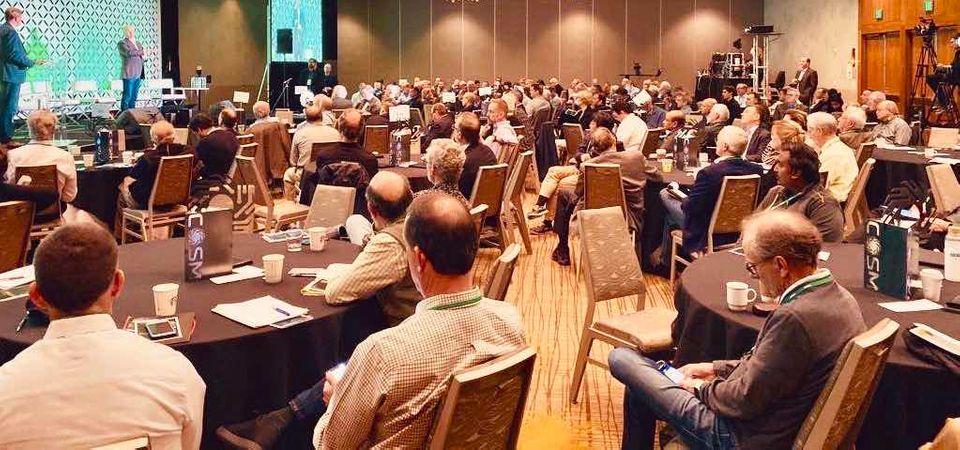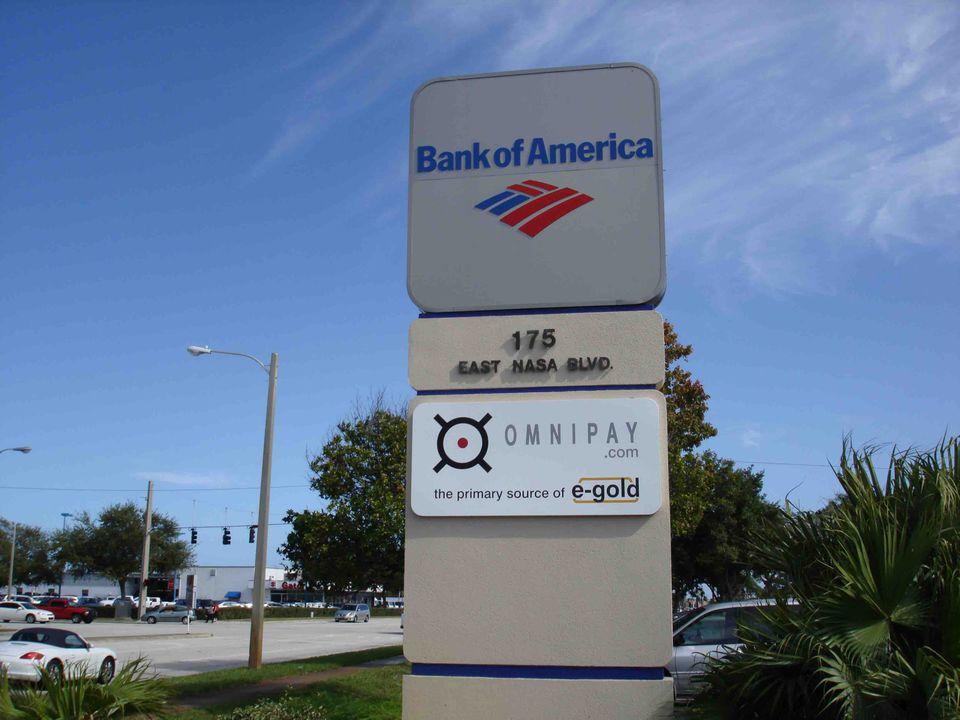Peter Thiel Discusses Blockchain, Google and Education - Part 2
2019-10-25
Peter Thiel talks with George Gilder and shares his thoughts on what life will be like after Google and other technologies like blockchain.
Bellevue, WA - October 23, 2019 light editing of live discussion
ArcBlock attended the COSM Technology Summit in Bellevue, WA, from October 23 to October 25. This year, the COSM event is hosting a world-class group of thought leaders, technology companies, and organizations focused on AI, Blockchain, Crypto, and Life After Google. During the summit, we had an opportunity to listen to Peter Thiel and George Gilder talk about Life After Google and other thoughts around technology, education and blockchain. This is Part 2.
George: Today the US Government has a kind of full-court press against all of these giant technology companies. Their claim to be monopolies. Peter, you're the world's leading expert on monopolies. How they form, what they contribute, what their life cycle is. What do you think of this? All these huge fines for relatively trivial offenses, and an array of litigation against Facebook and Google and all these giant companies.
Peter: Well, I have to be-- I always think you have to, one has to disclose one's biases when one speaks and the one in my biases and one of these that makes, that makes me somewhat careful in answering your questions. I'm on the board of Facebook, and so I have to be pretty careful how I answered your question here, but let me give a somewhat indirect answer. You know, we are the big tech companies. You are facing, you know, Entrust. There's a lot of regulatory stuff. Europe is pushing a lot of tax-related things; they're privacy data ownership issues. There's a lot of different levels on which they are under cultural and political attack. The way I understand what is in sort of debate the merits, what parts of these criticisms are justified, and what parts are not justified.
Peter: I think the way of the context of why this is happening. It's always a story where it's like, Silicon Valley did all these bad things. I don't think that's the main story. I think the main problem Silicon Valley has is it's not done enough good things. The story that began again, picking on Google. Google should be able to say yeah, maybe there are all these things we're doing that are problematic in certain ways, but we've made the world a better place in all of these other very important, very tangible ways. That story's gotten harder and harder to tell. I think that remains sort of the core challenge of Silicon Valley.
Peter: On the specific merits of these questions, the way I believe Silicon Valley should defend itself. I think you know, there's a lot, some of these criticisms are justified and Silicon Valley needs to do a better job in many ways. I believe that the core defense Silicon Valley should get against the accusations of being too vague and too centralized in all of these problematic ways is that the alternative to Silicon Valley, the practical alternative at this point, is perhaps not the anarchistic crypto de-centralization. The most likely alternative is even more centralization in the form of Chinese tech companies. If there's a problem with big tech, if it's too homogenized, too centralized, and so on, we have to be careful that we don't set up an alternative where it's even bigger and even more centralized.
George: We've got some questions here. Thank you. I very much respect and appreciate your views on education. Ninety-five thesis founders, fund and beyond. I guess that's 1517 that we do together, and I described in Life after Google. How do you envisage the ideal improved education system to produce young people who will bring progress rather than more cards for the existing machine? There's a question for you.
Peter: Yeah, let me say something about this and the 1517 reference. We had this idea two years ago in 2017, but still very, very much correct. The way to think of the universities today is that they are as corrupt as the Roman Catholic Church was 500 years ago. They are, you know, you had sort of the system of indulgences that takes the form of runaway tuition. You have this priestly or preceptorial class that is pretty lazy and doesn't do very much work. You have this theory of salvation where salvation consists of getting a diploma, and if you do not get a college diploma, you are going to end up in a terrible place. There's a sort of story as well. I think that it's a universalized, centralized big story.
Peter: It's the successor to the universal Catholic Church as this universal university system. It's oxymoronic to describe it. Still, I think you have to think of it as the Atheist Church, a capital A and a capital C. That's one of the things that I think, I have no problems with the church, and I have some questions with atheism, but I think the Atheist Church is really too much. We should be fighting the Atheist Church in all of its forms. I think the 1517 analogy, I can't quite predict the future but is that reform does not come from within.
Peter: There are all these attempts to reform these universities from within. It is just, it feels like a fool's errand of sorts. You know, I remember in 2007, over a decade ago, I had this idea that my big non-profit philanthropy project was going to be to start a new university, and my foundation spent a year and a half looking at all the universities that have been started in the US in proceeding hundred years, 1907 to 2007, and it was a sorry tale of donor intent to betray and money wasted and things just not working at all. There were two tiny things that you can say started working. On the whole, it was just a sorry, sorry tale of failure. The lesson I took from it was a little bit of humility because one reaction, "Well, people fail this for a hundred years, and I'm going to do it better."
Peter: The lesson I took; instead, it was no, maybe the system is unbelievably hard to reform on the inside. Like in 1517, reformation starts from the outside. The alternative is not to create some new universal university system, some new template. It's for people to do different things. The way we start was with this Thieu Fellows Program. We try to convince 20 students here to stop out of college and start companies. It was not a plan, but it was going off the sort of ever narrower tracks that are working ever less well.
Peter: Some generalization of that is what, I think, we all sense that we need, you know a lot of it. One framework that I had for our program that might be a useful framework for the post-university thing is there was always a lot of; there's a lot of stuff one could still do in computers. We always thought a lot of it was about programming, and then to the extent, we wanted a program for what we were doing. We thought what we need to do is deprogramming. The sort of the label I thought for an internal label we had for the Thieu Fellowship was it was about programming and deprogramming, and we need to deprogram people from the call to the Atheist Church.
George: What about online education? What is the promise of that? There are a lot of really significant initiatives, which are having an impact. Is the prospect truly in using information technology to provide high-end philanthropy education?
Peter: Well, there's a lot that one can do online and in all of these forums. When I take my venture capital list hat and look at these things as things to invest in, I always think it's essential to sort of break down a little bit the abstractions and to remember that getting an education itself is always an abstraction. If we make it a little bit less abstract, let me suggest there are four different things that education means in practice in our society. One thing is certain, the precise meaning that's all about learning. It's about information, and it's a positive-sum game. It's about learning. The four sort of variations of it is it's an investment in your future. You go to college; it's sort of an investment into a better future.
Peter: Second, it's a consumption decision. It's like a four-year party, and I used to think that it was this bad superposition, it's a bad quantum superposition of investment and consumption. It was sort of like people in the housing bubble bought a large house with a swimming pool, and it showed how frugal they were and how much they were saving for retirement. It was, you start conflating investment and consumption, which is always a mistake. I now think it's the third and fourth ones that are the more important.
Peter: The third one is that it's an insurance product and that it's something you buy to avoid falling through the ever bigger cracks in our society. You can pay, and they charge more and more for you because people are getting more scared about some of the things that have gone wrong in this country.
Peter: The fourth one is it's a zero-sum tournament, where you have to think of Harvard and Stanford and Cal Tech, and the other elite universities as a sort of studio 54 nightclub, in which the value is not that you have this information and that the value comes from exclusion, from excluding people. You know, there's like a Harvard or a Stanford version of putting Harvard or Stanford classes online and letting people take them. These universities have done it, and people can take those classes in many cases, but they don't get credit at Harvard or Stanford. Taking those classes does not lead to a Harvard or Stanford degree.
Peter: That tells you that a lot of the value of this is very strange good that is called education comes not from the actual learning, but more from things like the status, selection, exclusion, things of that sort. I think that when we look at these different approaches, we have to try to disentangle what they're doing. Online education is excellent for learning, but unfortunately, learning has almost nothing to do with the so-called educational system.
George: What can we hope for in the future in the Cryptocosm?
Peter: It's a little bit, it's a little bit harder than I thought in 1999 certainly. One of the books that tremendously influenced me when I started PayPal was the Sovereign Individual. It was written by Rees-Mogg, the father of Jacob Rees-Moog, the British Brexit parliamentarian. It was about how we are going to have cryptocurrencies, and it was going to be this decentralized world where sovereignty itself would get decentralized to the individual level. I read that book in the summer of '98, and it inspired me to, to start PayPal as this, you know, sort of a libertarian project, who's going to liberate people's money from the control of the central monetary authority, who's sort of the whole set of ideas we had around that.
Peter: You know, it's in the context of PayPal, we certainly built a successful business, but that part of the vision turned out to be quite hard to do. There were certain forms of electronic money that, in theory, were decentralizing and in practice, enabled more centralization and more control. Especially after 9/11 and the Patriot Act and all the ways that the regulatory state was able to more precisely track the flow of electronic money that it may have trended quite the other way.
Peter: Now, I do think of Bitcoin as the real thing. It is the centralized currency that we fantasized about at PayPal but didn't entirely build. You know, I have all these speculative thoughts on who Satoshi is and the Bitcoin origin story without stating precisely who. Let me give what I think is the key origin story for Bitcoin. When I, when I started PayPal, we were at this financial cryptography con. I went to this financial cryptography conference in Anguilla in the early 2000s, sort of annual conference and this gathering of people who are libertarian and cryptocurrencies and probably a decent number of people working at the NSA and a spine for the US government and other governments as well.
Peter: It's this rather interesting gathering of people. My theory is that Satoshi was at that conference, or at one like that in early 2000. You know, these ideas were germinated in the late '90s already. One of the manifestations of cryptocurrency at that particular conference was a system called E-Gold, and it was anonymous encrypted electronic gold certificates. The company was based in Southern Florida. They had these servers distributed all over the planet. Still, it was in theory, this gold-based alternative to the dollar, and it's going to be encrypted and say know all these problems with E-Gold. We made it operable with PayPal. We turned up, sort of a lot of criminal fraud, criminal activity, maybe that's always part of the tier for these things. We kind of disconnected from it.
Peter: But the people who started eventually got in a lot of trouble. The whole system was shut down. The company was targeted. They were prosecuted, and they, I don't know if they went to jail, but the whole thing was sort of disbanded. There was something about the E-Gold architecture that was, in theory, a cryptocurrency and theory fairly decentralized with their servers in Iceland and Dubai and one or two other places. But in practice, it was still centrally attackable by the larger central government. I believe that the true Bitcoin origin story was in contrast to E-Gold. It's almost the same name. It's like E-Gold, Bitcoin; It's like you were thinking about E-Gold, looking to do the next E-Gold, then change E to Bit and coin to gold. It was a sort of contrast to that. I think the reason we do not know who Satoshi is, is integral to the history of the Bitcoin. If we knew who it was, our too powerful central government would probably do some very unpleasant things to that person.
George: We had fun. How does your understanding, and this is a question from the audience. How does your understanding of technology inform you about the current pulse of personal relationships in the broader social and societal fabric?
Peter: Well, one would hope so. Look, I think there are all sorts of unhealthy trends in our society and things that are very off. Certainly, I think that the way I understand the Jordan Peterson phenomenon is that it's not that he's correct about Jungian psychology, which I think is just ridiculous, but what's Peterson's been effective because Jungian psychology is a politically correct way to talk about the extremely dysfunctional gender relationships in the United States and the West. Yeah. I think I agree with that premise to the question; there are some really big problems. I would disagree with the claim that it's mainly driven by technology. I mean, maybe there are aspects of tech, of sort of constant attention, distraction or things like that, that are unhealthy and that are socially unhealthy.
Peter: But I think these things are overdetermined. There are many things that drive it, and my intuition for what's gone wrong in a lot of these cultural areas is just the sort of general sense of cultural malaise. The stagnation, you know, the future is not getting better. Our society's not progressing. When people retreat into playing video games or living in their parents' basements, or staying in graduate school, I think the solution is yeah, maybe you should give them a Jordan Peterson-like psychology lesson. Maybe you can tell them to turn off their iPhones, or we would take away their iPhones. I think the real structural thing is we have to get back to the future, and we have to get back to growth in our economy generally. That's at least always my bias.




